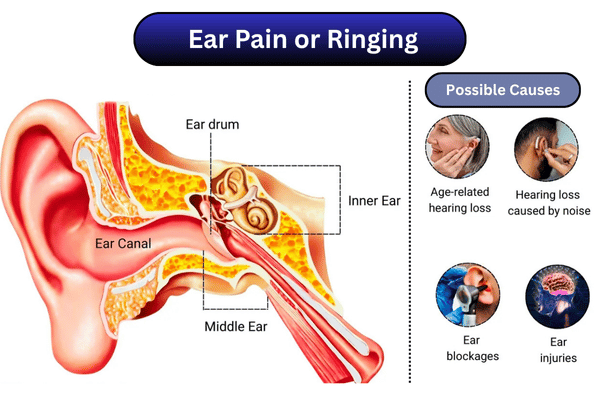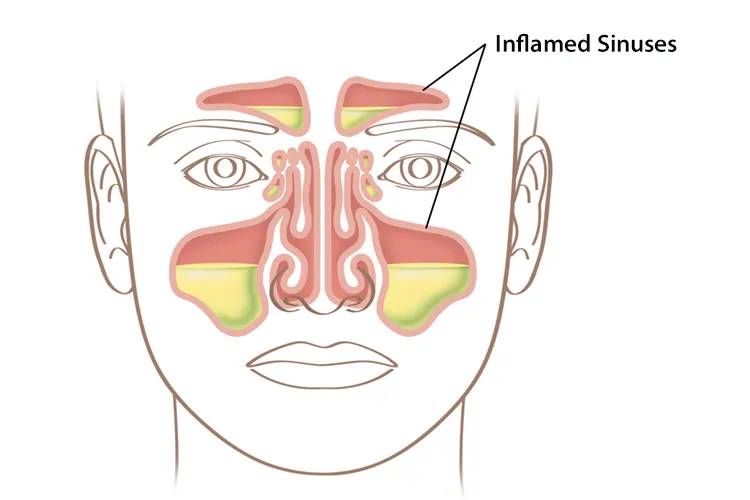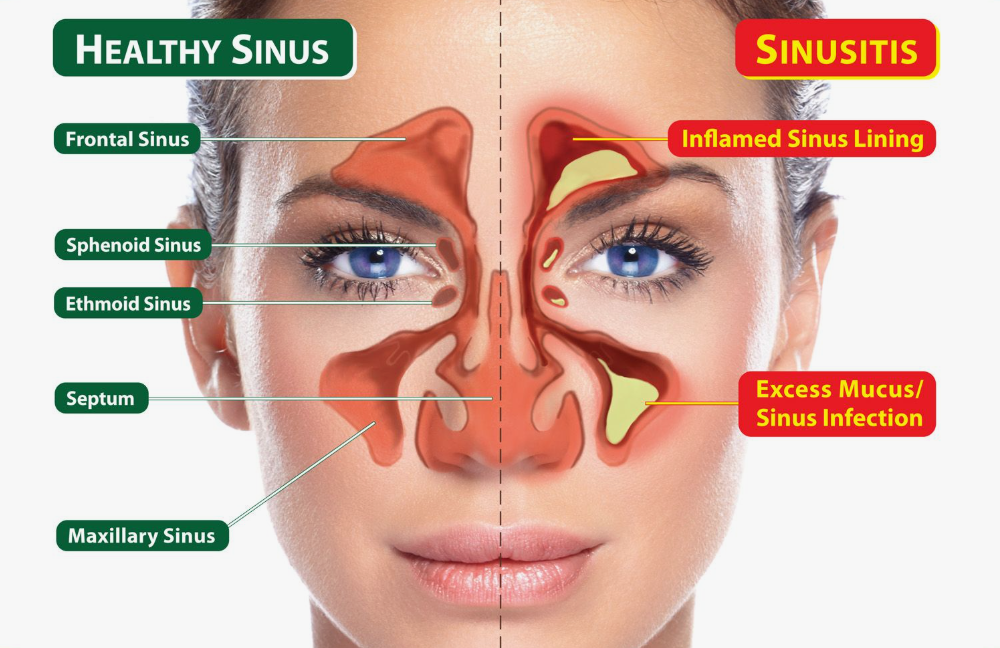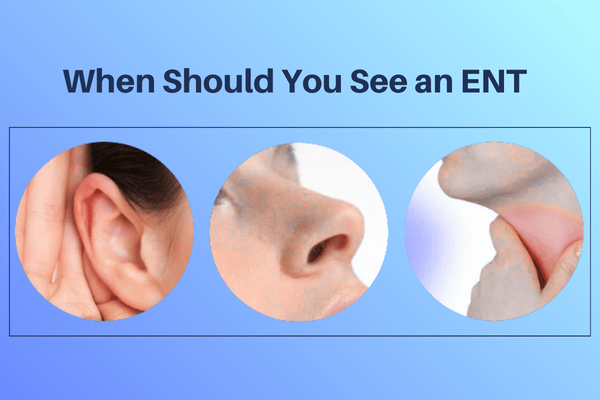When Should You See an ENT?
Ear, nose, and throat problems are often brushed aside as minor. A little ear pain, nasal blockage, or sore throat may seem harmless, but ignoring these signs can lead to long-term issues. Knowing when to see an ENT specialist can save you from chronic discomfort and complications.
At Auricle ENT Hospital, Kharghar, Dr. Sujata A. Gawai, a trusted ENT specialist in Navi Mumbai, shares the important symptoms you should never ignore.
Understanding What an ENT Specialist Does
An ENT (Ear, Nose, and Throat) doctor, also called an Otolaryngologist, treats a wide range of conditions affecting:

- Ears: Hearing loss, infections, ringing in ears, balance issues
- Nose: Sinus problems, allergies, nasal obstruction, snoring
- Throat: Tonsillitis, voice problems, swallowing difficulties
They also diagnose and manage conditions involving the head, neck, and related structures.
Persistent Ear Pain or Ringing

If your ear pain lasts longer than a few days or keeps returning, it’s time to see an ENT.
- Continuous ringing in the ear (tinnitus) could signal hearing loss or nerve damage.
- Discharge or fluid from the ear may indicate infection.
- Dizziness or balance problems can point to inner ear disorders.
Ignoring ear symptoms can lead to permanent hearing damage. An ENT will perform a simple ear examination to identify the cause and start treatment early.
Nasal Blockage That Doesn’t Go Away

A stuffy or blocked nose lasting more than two weeks may be more than a seasonal cold.
- You might have sinusitis, nasal polyps, or deviated septum.
- Difficulty breathing at night or snoring could be a sign of nasal obstruction.
- Loss of smell may be linked to chronic sinus problems or allergies.
Modern ENT care includes nasal endoscopy and imaging to detect hidden causes. Early diagnosis brings faster relief.
Frequent Throat Infections or Hoarseness
Recurring sore throat, difficulty swallowing, or voice changes lasting more than ten days deserve medical attention.

- Chronic tonsillitis can cause repeated infections and fever.
- Persistent hoarseness may be due to vocal cord strain or growths.
- Throat discomfort without cold symptoms might point to acid reflux.
If your voice feels strained or you often clear your throat, visit an ENT to rule out underlying problems.
Hearing Loss or Sudden Changes in Hearing
Sudden hearing loss or muffled sounds should never be ignored.
- It may occur due to earwax blockage, infection, or nerve damage.
- Early treatment improves recovery chances.
- Delayed diagnosis can cause permanent loss.
A simple hearing test or audiogram can help identify the exact cause and guide treatment.
Persistent Snoring or Sleep Disturbance
Loud snoring may not always be harmless.
- It could signal sleep apnea, a condition where breathing stops briefly during sleep.
- Untreated apnea can cause fatigue, heart strain, and high blood pressure.
- An ENT can evaluate your airway and suggest corrective options like nasal surgery or sleep studies.
If your partner notices gasping or pauses in your sleep, consult a specialist soon.
Dizziness or Balance Problems
Balance issues, spinning sensations, or frequent dizziness can arise from inner ear disorders.
- Conditions like Benign Paroxysmal Positional Vertigo (BPPV) are treatable but often ignored.
- Other causes include infection, inflammation, or fluid buildup.
A detailed ENT evaluation can help restore balance and prevent falls or disorientation.
Chronic Sinus Headaches or Facial Pain

Frequent headaches around the eyes, forehead, or cheeks might not be migraines.
- They can stem from sinus inflammation or nasal congestion.
- Other signs include post-nasal drip, nasal pressure, or fatigue.
If over-the-counter medicines don’t help, an ENT can perform imaging to check for sinus infection or blockage.
Why Choose Dr. Sujata Gawai
- Specialization: Consultant ENT Surgeon with expertise in endoscopic sinus and skull base surgeries.
- Experience: Over 10 years of experience treating ear, nose, and throat conditions.
- Personalized Care: Focused on accurate diagnosis and long-term relief.
- Location: Conveniently located at Auricle ENT Hospital, Kharghar, Navi Mumbai.
- Patient-Centric Approach: Every treatment plan is tailored to your specific needs.
Your health deserves timely care and expert attention.
FAQs
1. How often should I visit an ENT specialist?
If you experience recurring ear, nose, or throat issues, visit an ENT at least once a year for a check-up.
2. Can sinus problems go away without treatment?
Mild sinus issues may resolve, but chronic sinusitis needs medical evaluation to prevent recurrence.
3. What are the signs of hearing loss?
Difficulty following conversations, turning up the TV volume, or asking others to repeat themselves often indicate hearing issues.
4. Should I see an ENT for snoring?
Yes. Persistent snoring may signal nasal blockage or sleep apnea, both manageable with ENT care.
5. Can allergies cause throat or ear problems?
Yes. Nasal allergies can affect the ears and throat, leading to congestion and irritation.
Take the Next Step
Don’t wait for discomfort to become a major problem. If you notice any of these signs, schedule a consultation with Dr. Sujata Gawai at Auricle ENT Hospital, Kharghar.
📍 Auricle ENT Hospital
Shop No. 309, 3rd Floor, The Pacific Building, Sector 13, Plot 229, Shilp Chowk, Kharghar, Navi Mumbai – 410210
📞 +91 877 906 6946
🌐 auricleenthospital.com
Early attention can make all the difference to your long-term ear, nose, and throat health.


